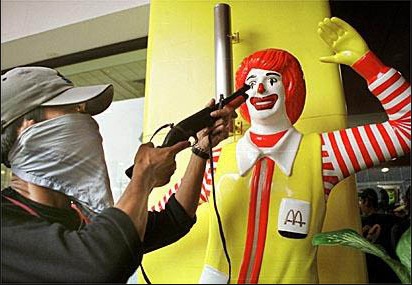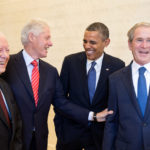McDonald’s defended itself Monday in New York against a new labor board standard that threatens to end the franchise model.
Under the National Labor Relations Act a company can be considered an employer over a company it contracts with if it has significant enough control over the employees. Known as the joint-employer standard, the rule helps to resolve labor disputes when it’s not clear whether the dispute arose from decisions made by the direct employer or a larger corporation it contracts with.
Recently, the National Labor Relations Board gained significant criticism from business leaders for applying a broader standard to the joint-employer rule. Critics fear the change will result in companies, that would have not been considered a joint-employers previously, now being classified as one. The case against McDonald’s puts the new standard to the test.
“The lawsuits against McDonald’s are aimed at using government to upend successful business franchise arrangements that work for so many entrepreneurs and employees,” Aloysius Hogan, a senior fellow at Competitive Enterprise Institute, declared in a statement to The Daily Caller News Foundation.
“It’s not just McDonald’s on trial – if the lawsuits succeed, workers and consumers will be negatively impacted, as well,” Hogan argued. “This attempt to designate businesses as joint employers could transform virtually everyone into an employee of a big conglomerate that, in turn, faces huge liabilities and expenses and is more easily unionized.”
“The salaries, jobs, and purchasing power of real people are put at risk by these lawsuits brought by Big Labor,” Hogan added.
Business owners are also concerned about what the new standard could mean for them. Clint Ehlers, a franchisee owner, sees the new standard as a way for the NLRB to help unions organize franchise employees.
“This thing is driven by the SEIU,” Ehlers noted to TheDCNF. “They have been looking to break the franchise model for years.”
If every franchise under a corporate band name is considered one operation, unions have the option of unionizing the entire thing as opposed to each individual business within the system. The impact, Ehlers fears, is that he will lose control over his business. If the corporate brand name becomes responsible for what is happening at each individual businesses it contracts with, they become more likely to assume control as opposed to letting them operate separately.
“They will take that control out of my hands,” Ehlers detailed. “Which is something I don’t want at all.”





2 comments